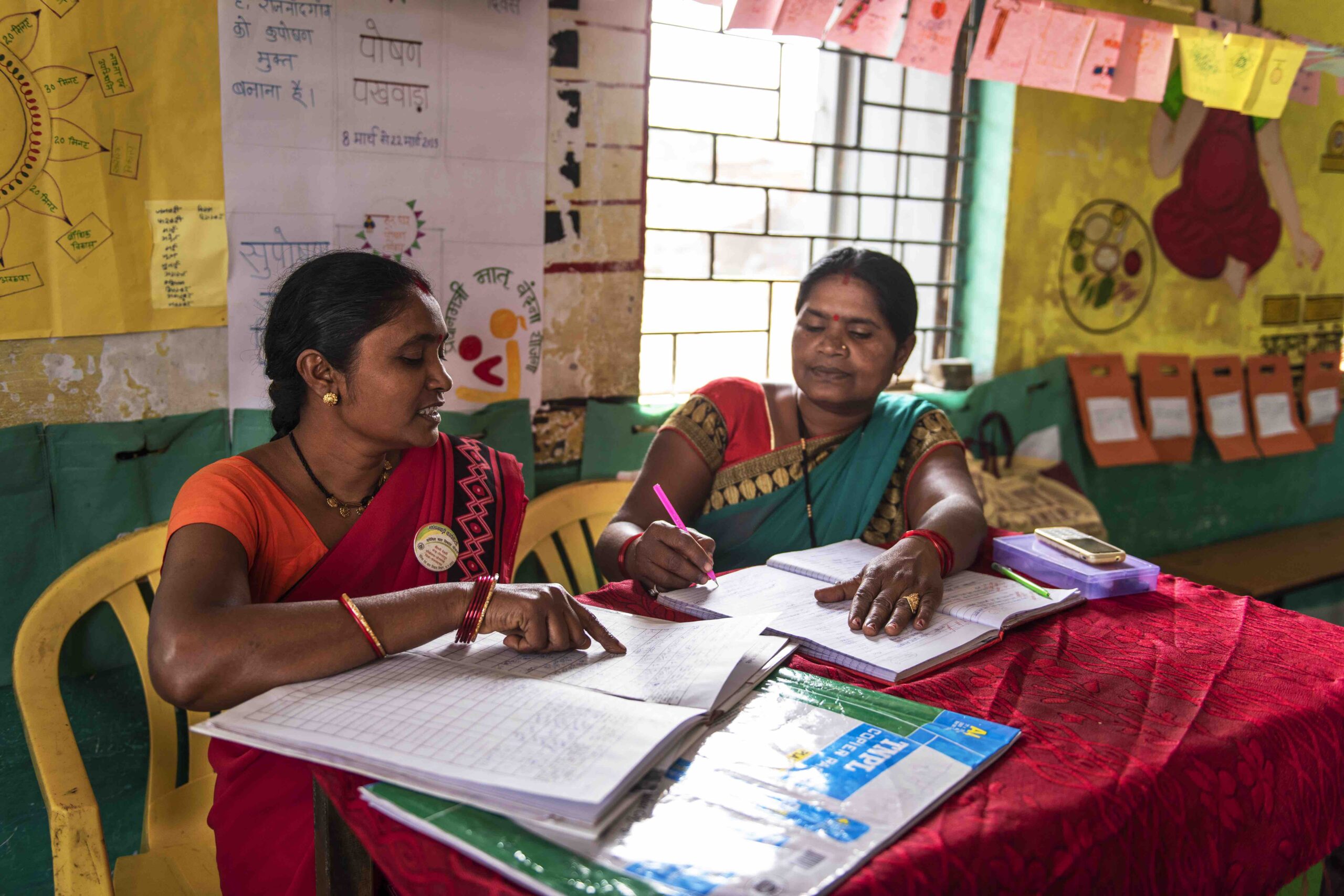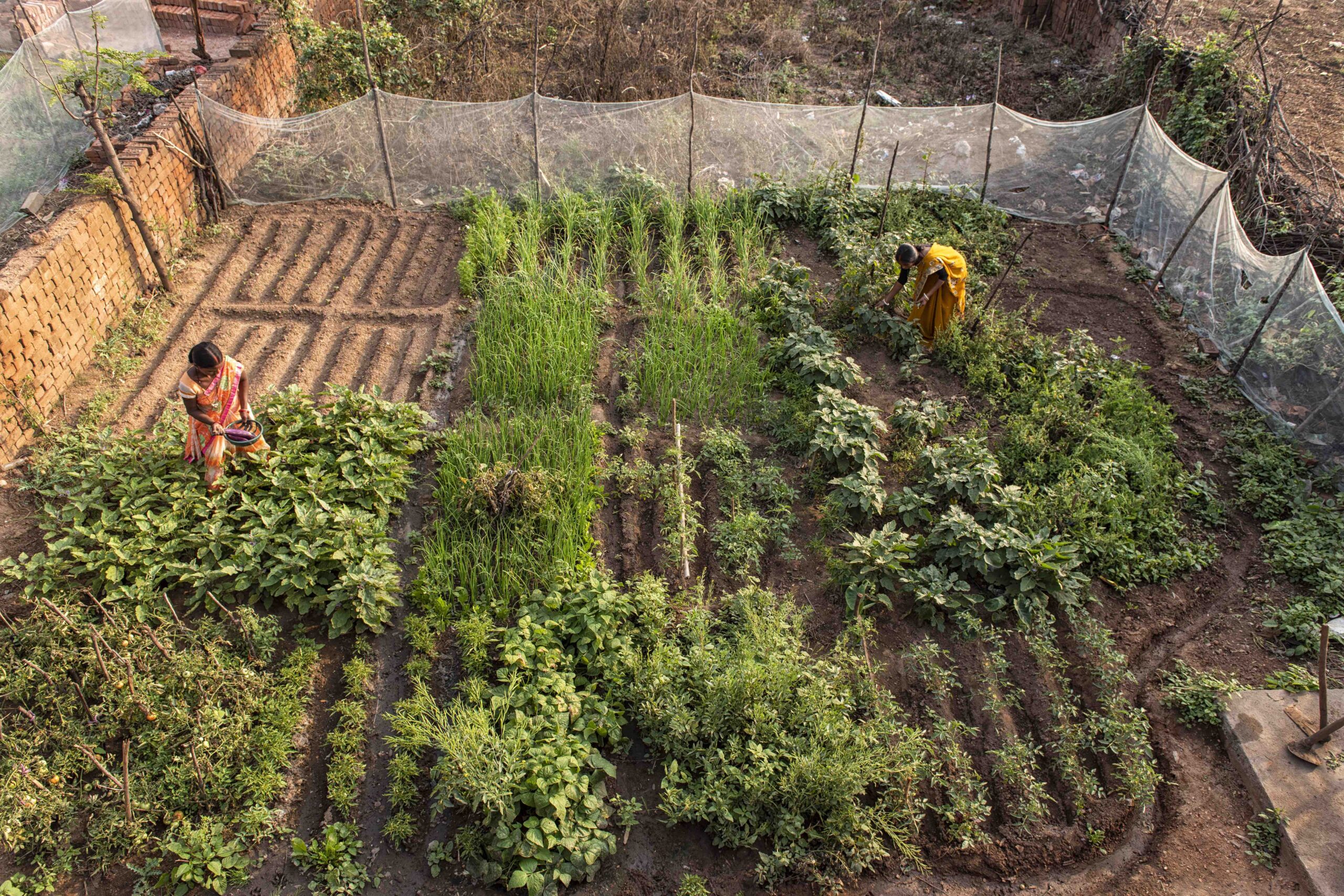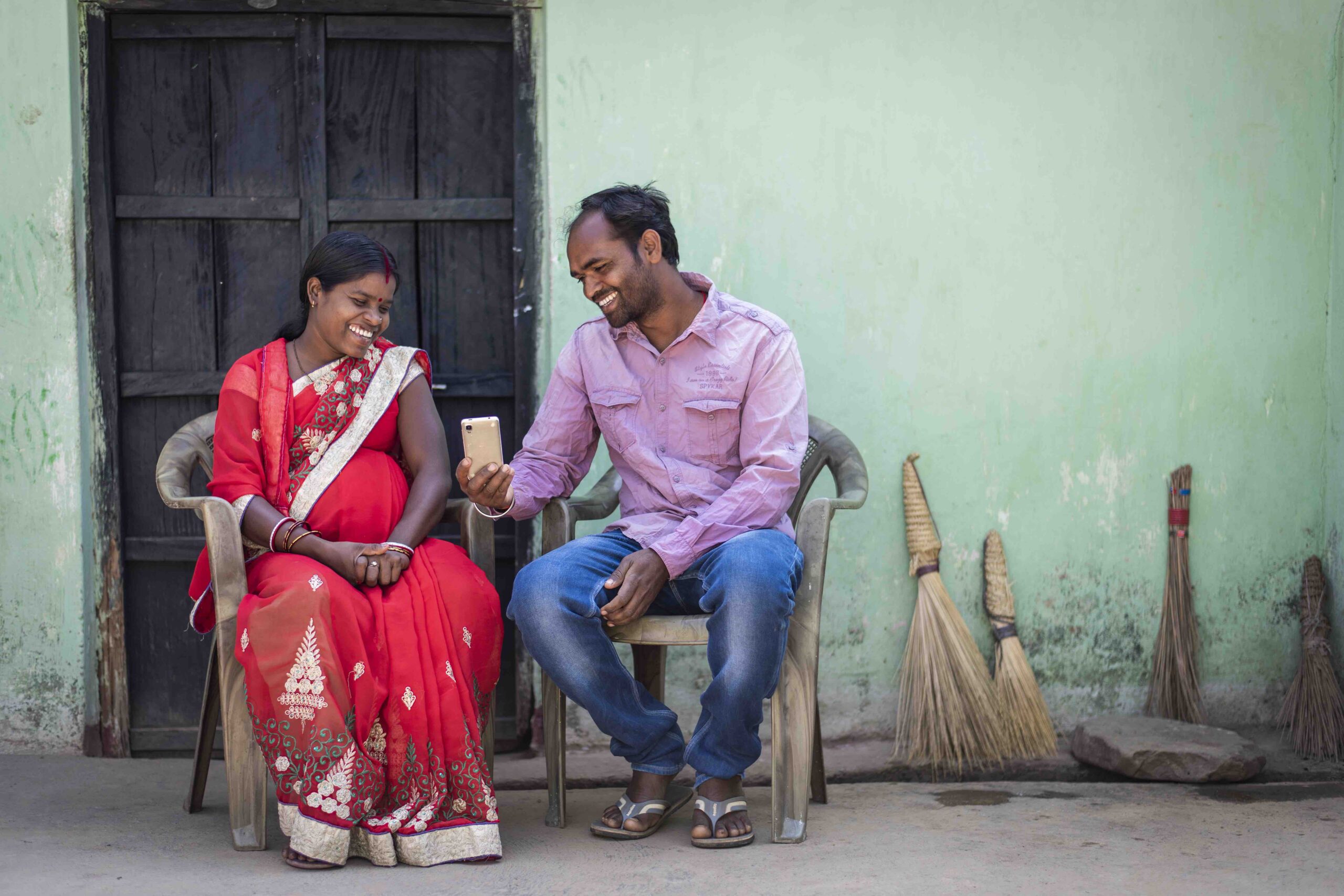To learn more about Digital Green’s AI-powered platform and how it impacts small-scale farmers in India, Ethiopia, Kenya, Nigeria and Brazil, we encourage you to sign up for our newsletter.
Communicating Best Practices in Maternal Child Health, Nutrition & Family Planning Through ICTs
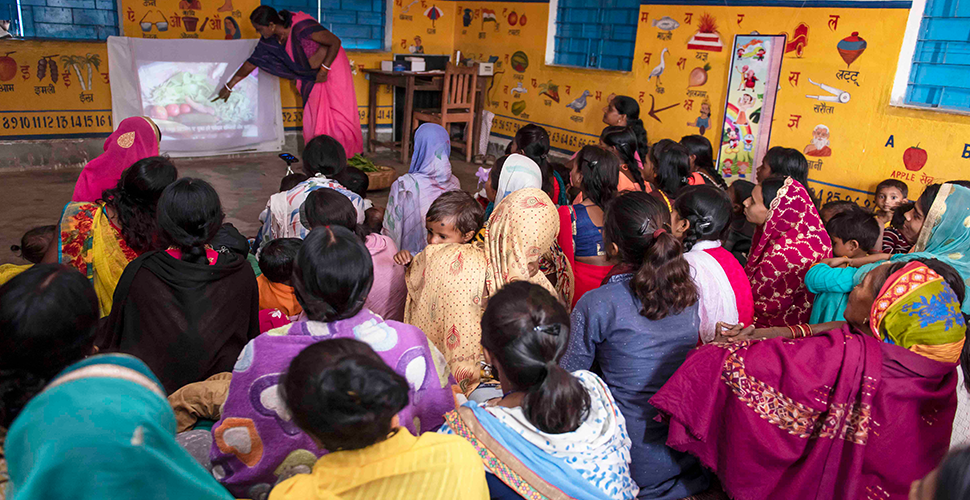
INTRODUCTION
Digital Green is an international development organization that empowers rural communities by harnessing the collective power of technology and grassroots-level partnerships to promote good practices in agriculture, nutrition and health. We have been working with government agriculture extension systems for over a decade using the community video-based approach that has been a powerful tool in the hands of agriculture extension agents in over 22 countries across Asia and Africa.
Since 2012, through a series of pilot projects across sub-Saharan Africa and India, we drew lessons that helped adapt the community video-based solution to health and nutrition messaging among rural communities who often receive scattered information regarding health and nutrition, and are often unaware of the government welfare programs that are in place or the importance of availing them.
The pilots also helped us adapt and revise the video production and dissemination training modules for effective implementation of health and nutrition projects, which required more nuanced content and treatment than in agriculture. Analysis of the data and anecdotal evidence from those pilots suggested that communities saw value and relevance in the videos. 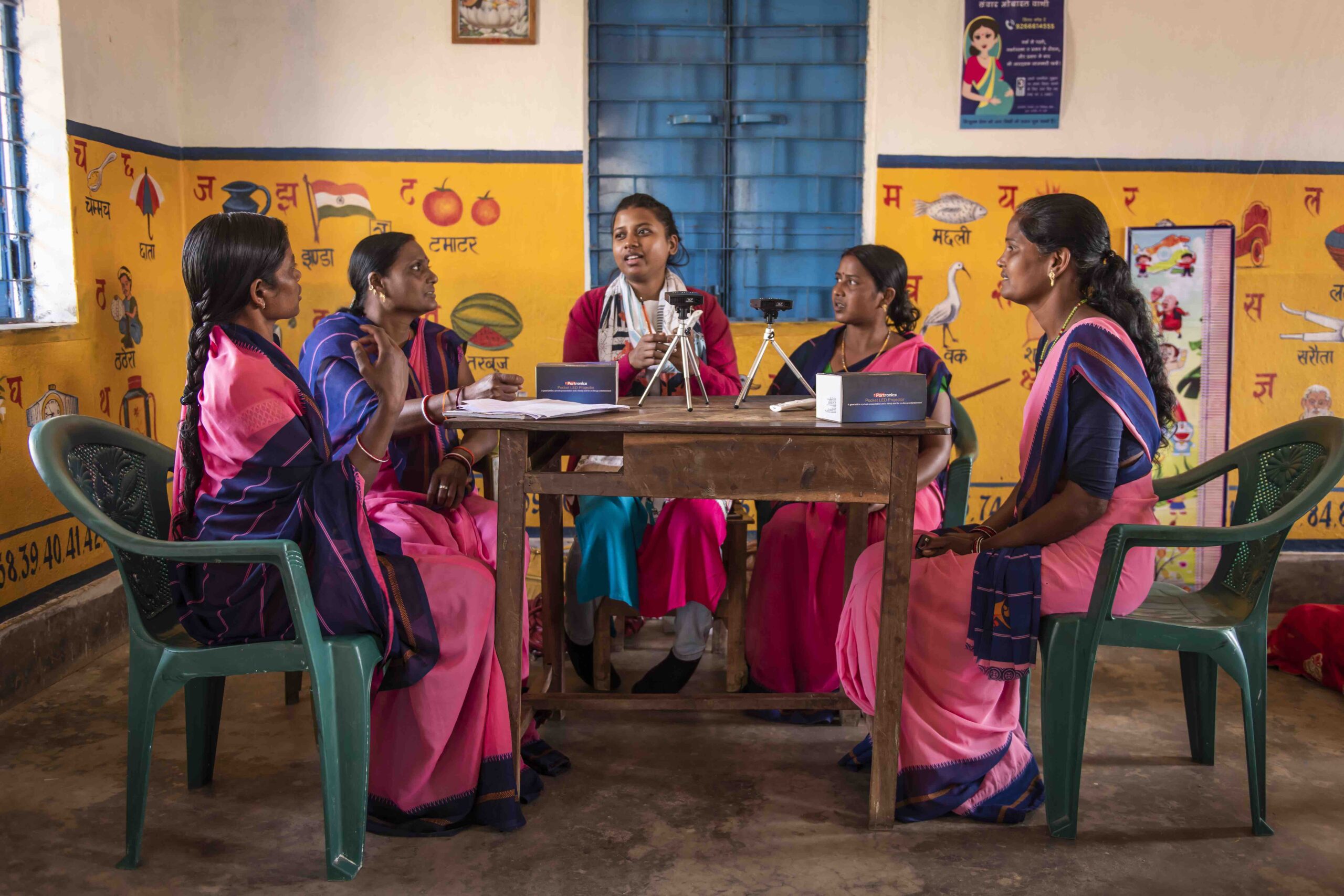
Our teams worked on improving the Data Management Information System to capture data and analyse trends related to the health projects. Additionally, with more experience, evidence, and observations from the eld, the health pilots were further streamlined by identifying best practices from the various pilot sites. Lessons such as the inclusion of men – to highlight their role in ensuring better health for the family, creating aspiration among the family to play a more supportive role. We captured successes, lessons, and challenges to define how this approach can be best utilized to trigger positive behavior change in the health domain.
In 2015, through a USAID supported five-year project, Samvad (meaning dialogue/conversation), we started to promote good nutrition practices among primary caregivers. With initial success in Bihar and Jharkhand, we expanded the scope of the project to include maternal and child health and family planning practices in 2017. We started promoting this basket of messages among women in the reproductive age group, specifically in the critical first 1000 days through locally relevant content created by the communities, for the communities.
This project is currently being implemented in 6 states in India, namely Jharkhand, Bihar, Chhattisgarh, Odisha, Uttarakhand and Assam, where we partnered with state-level counterparts of the National Health Mission, the National Nutrition Mission, Ministry of Women and Child Development, and National Rural Livelihood Mission, leveraging the existing cadre of frontline workers such as Accredited Social Health Activists (ASHAs), Aanganwadi workers (AWWs), Lady supervisors and extension agents.
We are also collaborating with various partners to introduce innovative and locally relevant ICT-enabled platforms including radio and interactive voice response systems (IVRS) to complement the video-based approach and enable a participatory learning environment and magnify the reach and impact.
While we started out with an aim of reaching 300,000 women directly and 1 million indirectly, we have, in fact, been able to reach over 500,000 women directly and 1.9 million indirectly as of July 2019.
Through project Samvad we have had a unique opportunity to work with a wide array of partners, witness inter-departmental collaboration and the dedication of the frontline workers working tirelessly with minimal resources ensuring they are able to spread awareness among their communities. This photo book documents our experience thus far as well as gratitude for the collaborations that helped achieve the impact.
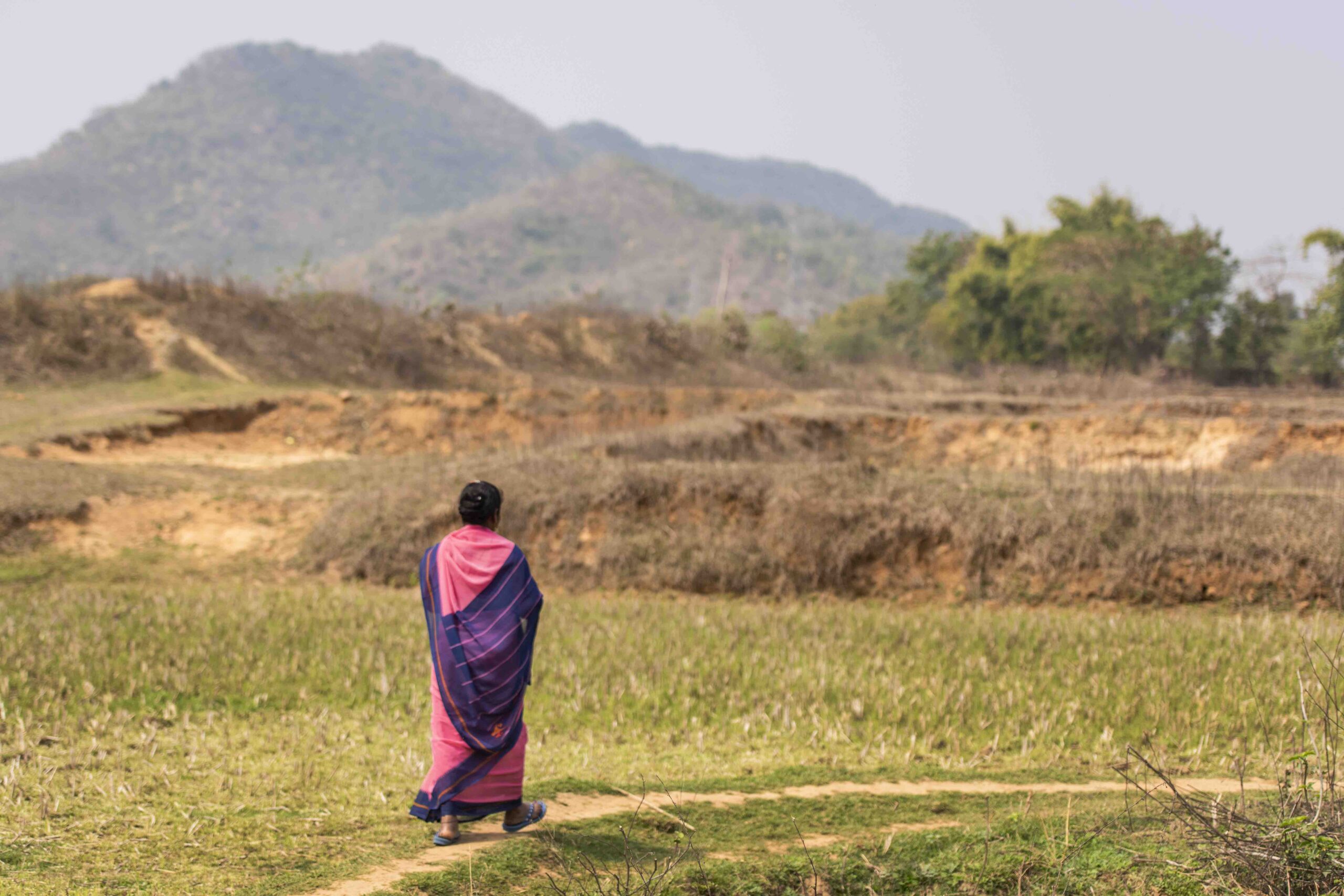
EMPOWERING FRONTLINE WORKERS
“Digital Green’s video-enabled approach has helped increase the attendance at the Village Health and Nutrition Days (in Patratu block) and helped in empowering the Anganwadi workers.”
– District Social Welfare Officer in Jharkhand
We have consciously worked with the existing health extension systems to ensure greater synergy with the community needs and to ensure the approach is owned and assimilated into the government systems. Even our trainings of the field level workers (FLWs) involve an SBCC approach for scripting, producing videos, facilitation skills, community mobilization as well as group discussion to address deep-rooted social norms and cultural beliefs which is a major barrier to changing health behaviour among women.
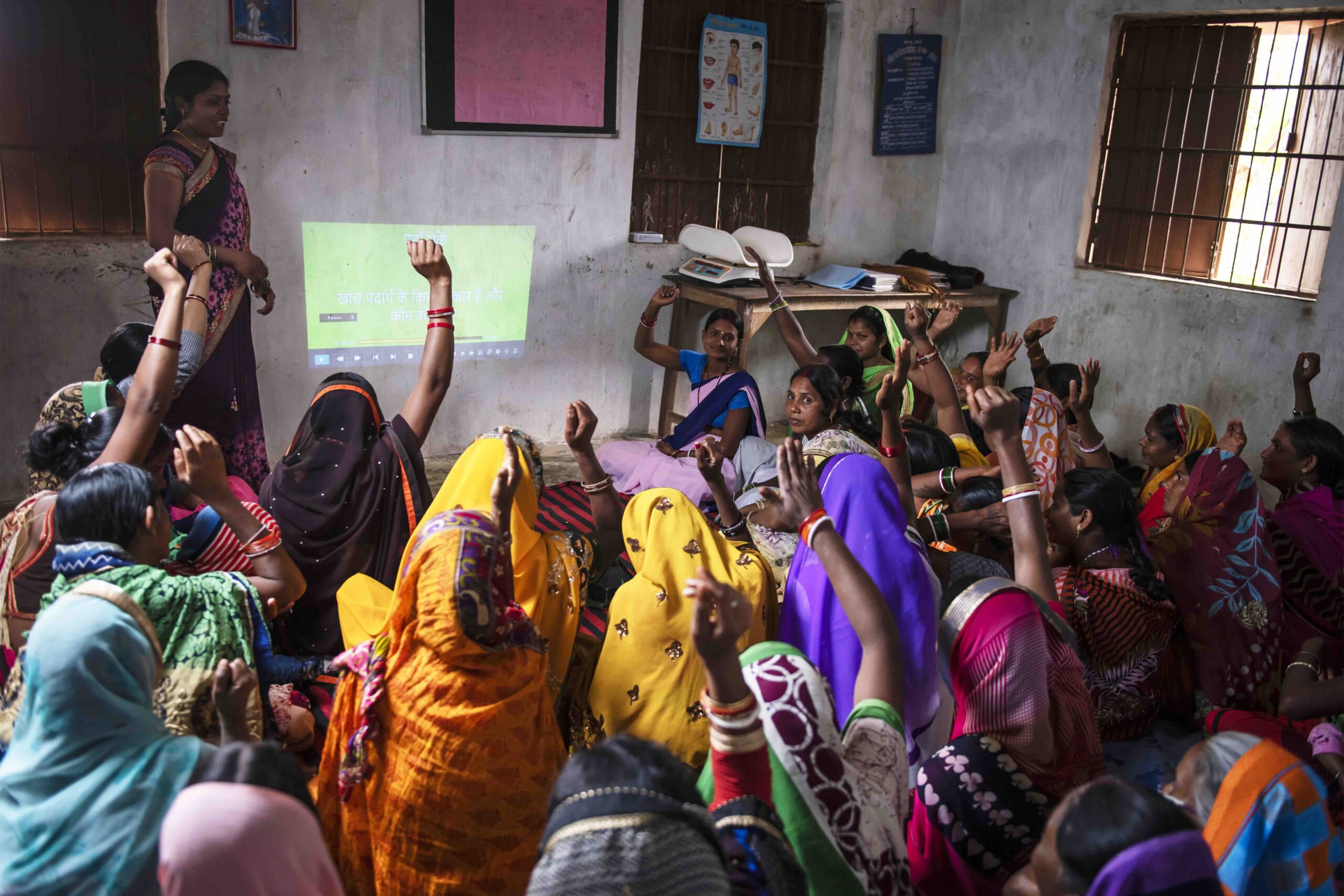
VIDEO AS A TOOL FOR BEHAVIOR CHANGE
“I shied away from taking the IFA tablets (iron supplements) fearing the side effects would hamper my abilities to take care of my household chores. At a video dissemination, the Mitanin Trainer (MT) noticed I had swollen feet and enquired if I had been taking the IFA tablets. She showed us a video about the importance of taking these tablets and how to tackle the side effects. This convinced me and I started taking the tablets and also shared my example with other pregnant women in my village.”
– Beneficiary, Chhattisgarh
The Samvad project aims for social behaviour change through its community-based videos. These are short videos in the local language, they dramatize the best practices related to specific behaviours, which are more relatable for the communities. These videos are created bearing in mind local taboos, myths and traditional practices that are contrary to scientifically proven best practices. The community videos are a blend of standardized messaging coupled with examples of positive deviance from the community resulting in social behaviour change.
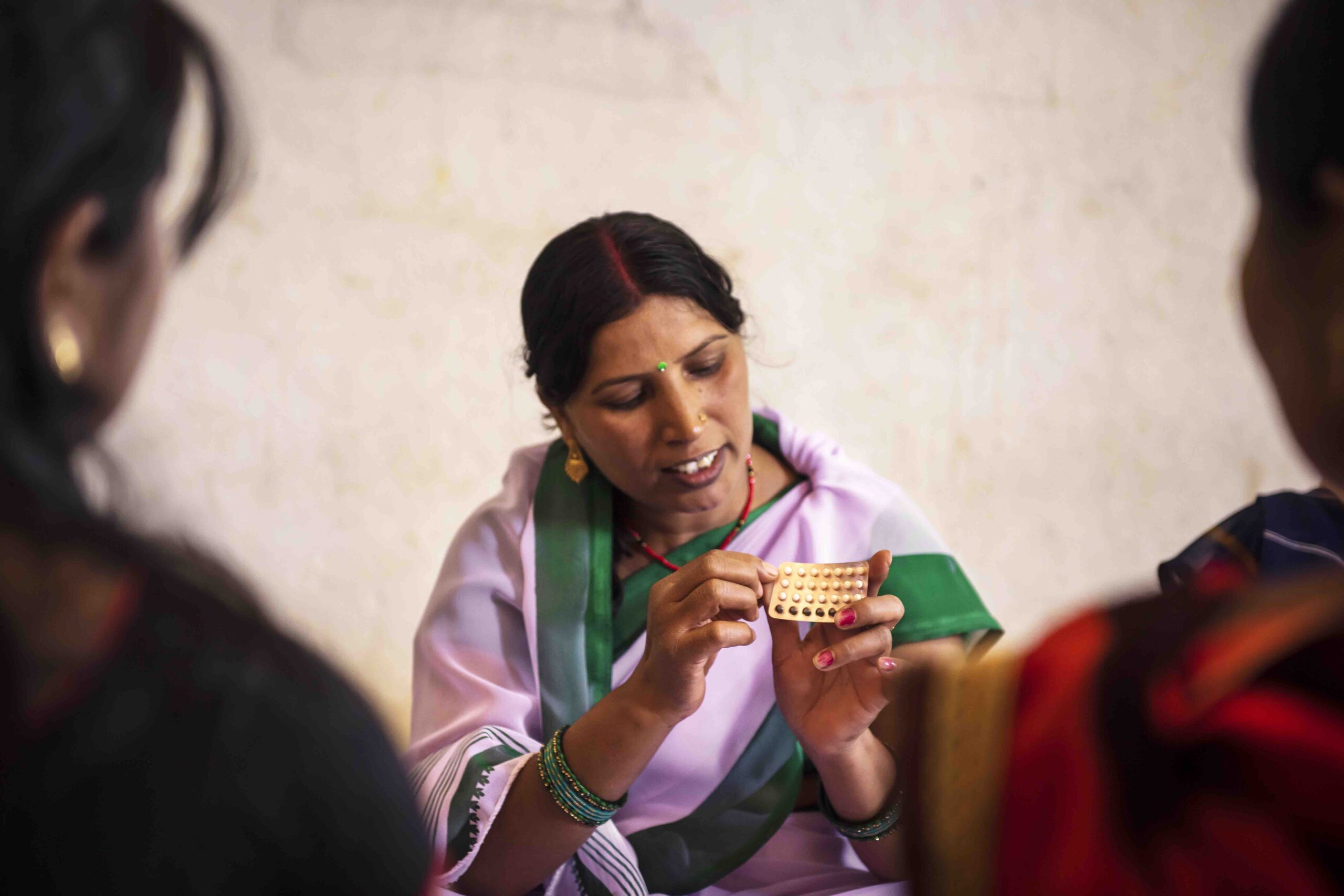
BREAKING MYTHS & CHALLENGING TABOOS
“The side-effects of the iron supplement (IFA tablets) and the stigma related to having any medicine during pregnancy has been a big barrier to my work.”
– Mitanin Trainer in Chhattisgarh
The Samvad project is particularly concerned about addressing social taboos and alternatively embracing social practices that can guarantee social behavior change through its videos.
The video on the importance of IFA tablets for pregnant women shown by the FLW illustrates in great detail a woman’s hesitation in eating the supplementary iron tablets due to the side effects and how to tackle them in a relatable manner.

EMBRACE ENABLING SOCIAL CULTURES
While there are social taboos and myths that hinder the adoption of best practices, we have also discovered social practices that encourage faster comprehension and adoption of best practices.
We found that community members of most of the tribal villages of Thakurmunda block, Mayurbhanj District in Odisha were unaware of the various stages of infant and young child feeding practices and its importance for the child’s growth. The concept of Annaprasana (a ceremony commonly performed when a child attains 6 months of age with much fanfare in most parts of India) was also absent. We observed that as a result of videos that showcased the importance of introducing complementary feeding through a social ceremony such as Annaprasana, the community quickly embraced the ceremony. It is now a regular occurrence celebrated with great joy.
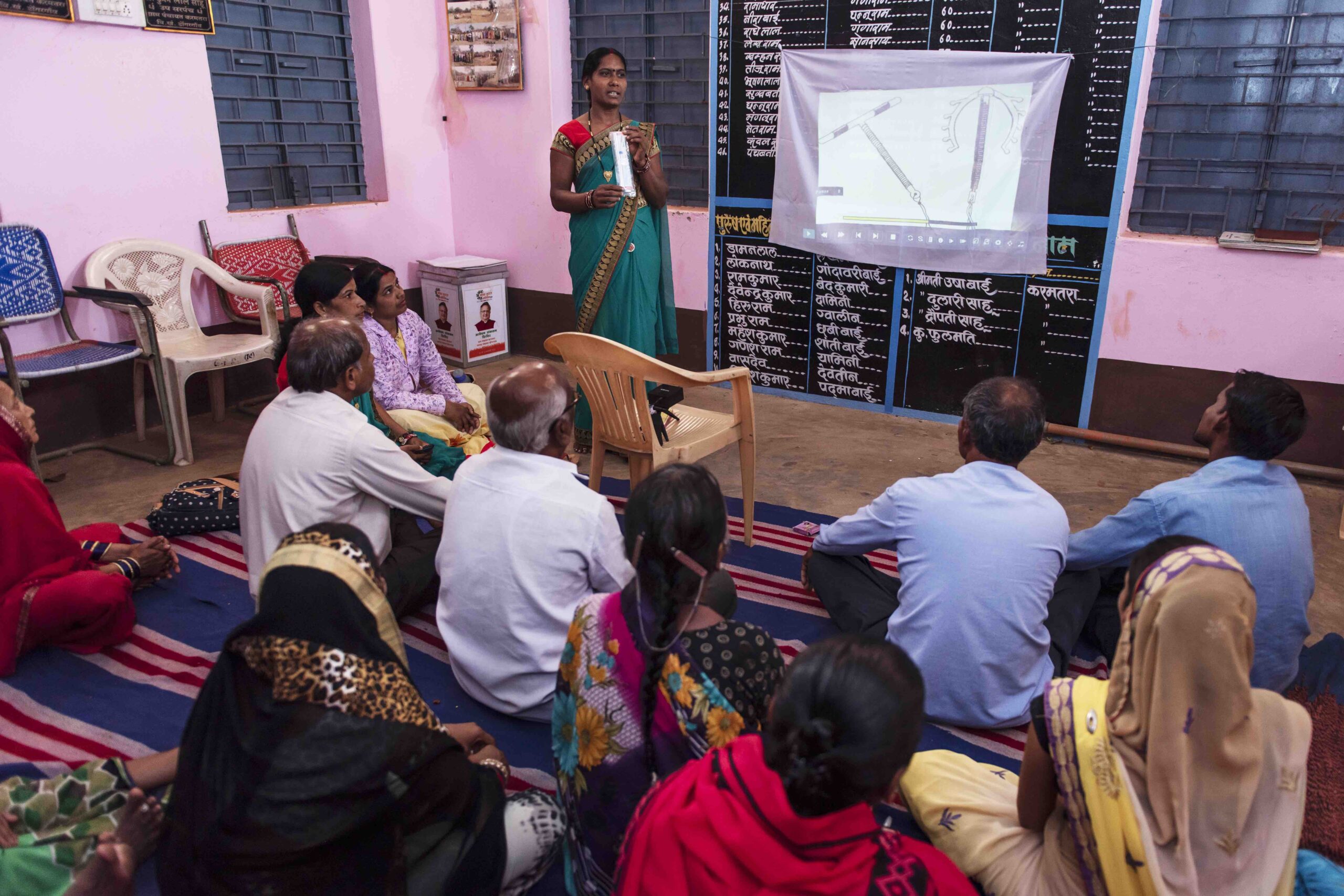
EXPLORING AG-NUTRITION LINK
“We used to grow a single crop in our kitchen garden and leave it fallow in the summers. Now we’re growing a variety of crops and watering it with the wastewater as explained in the video and don’t have to buy them from the market or store it in the refrigerator. We’re also not falling ill as much as before as we’re consuming fresh vegetables grown organically.”
– Beneficiary in Jharkhand
Undernutrition in rural communities can be traced to a dearth of information about nutrition, as well as the unaffordability of nutritious food.
Leveraging our experience in agriculture extension, a valuable collaboration with the Livelihood Mission in Jharkhand helped us layer in the agriculture-nutrition link through videos on the concept of ‘Agri-Nutri Garden’. The concept ensures, sustainability by using organic compost, wastewater and low-cost solutions for protecting the crops from livestock.
Once the community understands the importance of dietary diversity for healthy development through the videos, the frontline workers guide them towards options for bridging the gap with the Agri-Nutrition Garden model.
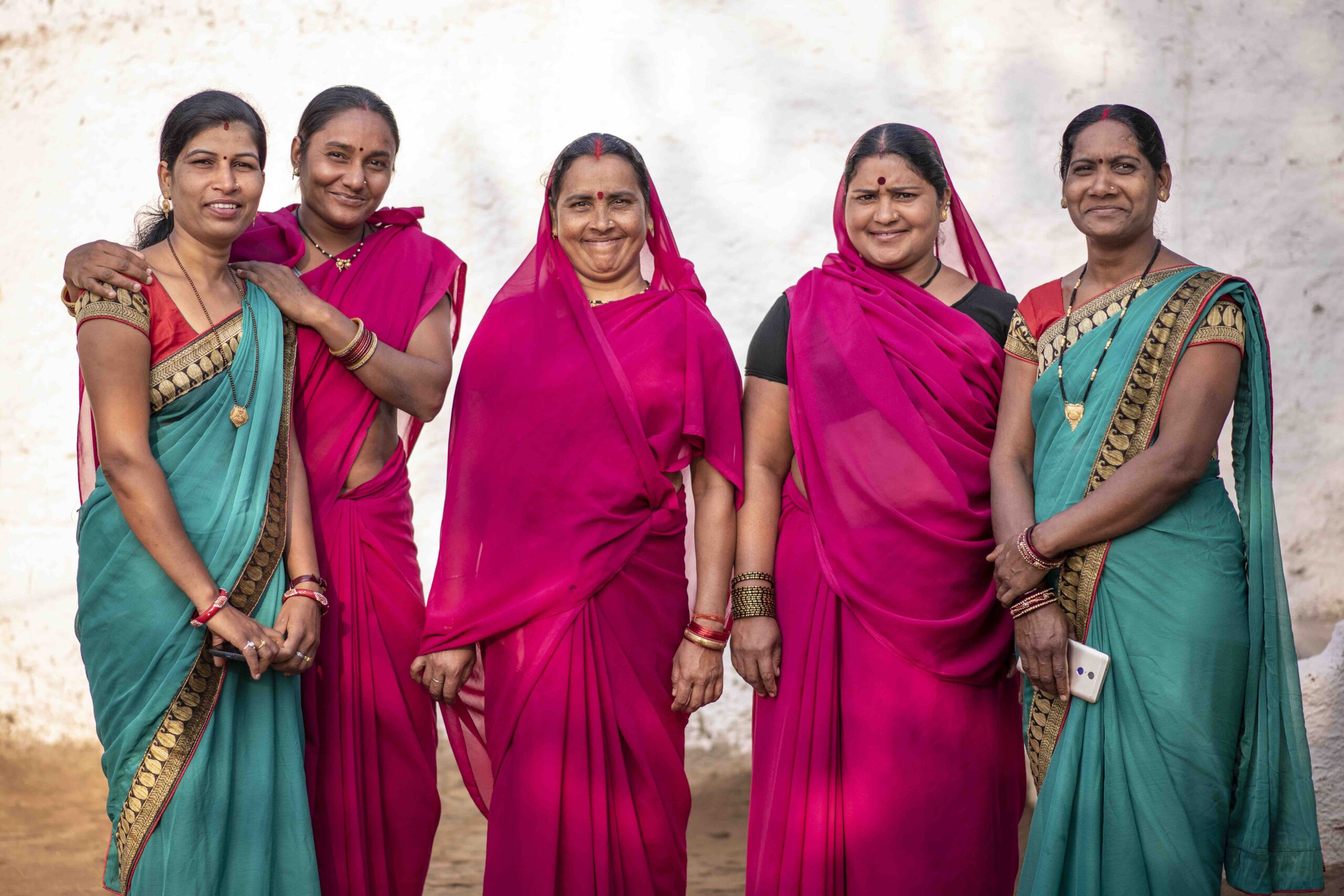
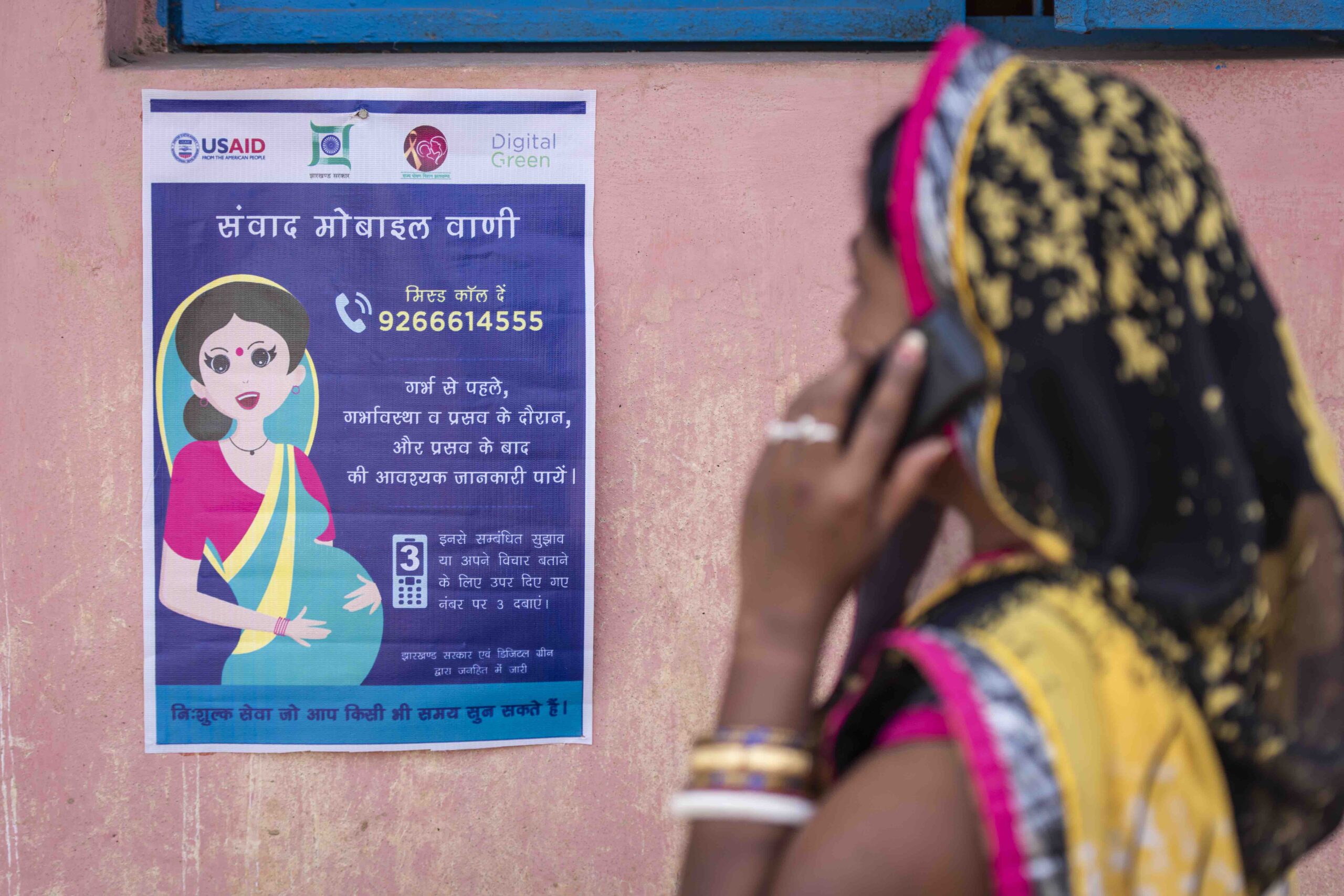
COMPLEMENTARY AND PARTICIPATORY ICT SOLUTIONS
“Salma (mother of an 8-month-old) was not aware of the importance of a balanced diet for her child’s growth, as a result, her child was very weak. I showed her the video on complementary feeding and also shared with her the number of Samvad Mobile Vaani. She became a frequent listener and started following the practices suggested. As a result, her child’s growth has been very good and has gained weight too.”
– Anganwadi Worker in Jharkhand.
Increased mobile penetration in rural India and available ICT solutions provide opportunities to adopt an integrated and comprehensive approach to increase awareness, achieve higher uptake of recommended actions by beneficiaries, create life-stage specific targeted messaging and increase overall reach. With this aim, Digital Green partnered with GramVaani in Jharkhand to employ their IVR-based social platform to complement our video-based outreach. The messages on Samvad Mobile Vaani are a combination of drama, testimonials, infotainment directed to change behaviors and prompt action. A unique element of the solution is that the platform allows two-way communication wherein the audience can hear the pre-recorded thematic messages and also record their own messages in response to what they are listening to and can also listen to messages recorded by others like them. These include their feedback, experiences, queries, additional and alternative best practices. The IVR messages reach men and women irrespective of the type of phone they own at zero cost.
CAPTURING DATA, MONITORING & EVALUATION
To monitor progress and impact, periodic lean monitoring and evaluation surveys have been designed to evaluate core coverage, exposure, and outcome indicators. Digital Green is working with the London School of Health and Tropical Medicine (LSHTM) and Centre for Media Studies (CMS) to gather data and assess the project’s reach via different platforms and partnerships and evaluate its impact.
